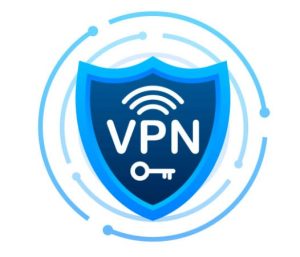In today’s global economy, businesses are increasingly relying on offshore teams to access top talent, reduce costs, and expand their reach into new markets. However, building and managing offshore teams presents unique challenges that require the use of advanced technology solutions.
In this blog, we will discuss the role of technology in building and managing offshore teams and explore some of the most effective tools and strategies available to businesses today.
 Communication and Collaboration Tools
Communication and Collaboration Tools
Effective communication and collaboration are essential for managing offshore teams. Technology solutions such as video conferencing, instant messaging, and collaboration platforms like Slack, Microsoft Teams, and Asana can help teams stay connected and collaborate effectively across different time zones and geographies.
These tools not only improve communication but also facilitate a sense of connection and collaboration among team members.
According to a study 43% of remote and in-house teams use a video conferencing tool (Source: GetVoip) & 78% of corporate companies use video calling software for team meetings (Source: HR Technologist.) According to a survey by Owl Labs, 62% of remote workers use video conferencing tools to communicate with their teams
Here are some of the most popular communication and collaboration tools used by businesses with offshore teams:

Video Conferencing Tools
Video conferencing tools such as Zoom, Google Meet, and Microsoft Teams have become an essential part of remote work, allowing team members to connect face-to-face from anywhere in the world.
Benefits:
Real-time communication: Video conferencing enables team members to communicate in real-time, reducing delays and improving collaboration.
Reduced travel costs: Video conferencing eliminates the need for expensive travel, making it a cost-effective solution for businesses with offshore teams.
Improved collaboration: Video conferencing allows team members to see and hear each other, fostering a sense of connection and collaboration.
Instant Messaging Tools
Instant messaging tools such as Slack, Microsoft Teams, and Skype are also widely used by businesses with offshore teams. According to a survey by FlexJobs, 54% of remote workers use instant messaging tools to communicate with their colleagues.
Benefits:
Quick and efficient communication: Instant messaging tools enable team members to communicate quickly and efficiently, reducing delays and improving collaboration.
Easy sharing of files and documents: Instant messaging tools allow team members to share files and documents with each other easily, improving productivity.
Improved communication across time zones: Instant messaging tools enable team members to communicate across different time zones, improving collaboration and reducing delays.
Collaboration Platforms
Collaboration platforms such as Asana, Trello, and Basecamp are used by businesses to manage projects and tasks. According to a survey by Wrike, 81% of businesses that use project management software report that it has improved the productivity of their teams.
Benefits:
Improved project management: Collaboration platforms enable businesses to manage projects and tasks more efficiently, improving productivity and reducing delays.
Increased transparency: Collaboration platforms provide real-time visibility into project status, allowing team members to stay informed and up-to-date on project progress.
Improved collaboration: Collaboration platforms allow team members to work together on projects, fostering a sense of connection and collaboration.
 Project Management Software
Project Management Software
Managing offshore teams requires efficient project management software to track progress, assign tasks, and monitor deadlines. Project management software such as Trello, Jira, asana and Basecamp can help teams manage their workloads effectively and stay on track.
There are several project management software options available for offshore teams.
Here are a few popular ones:
1. Asana: Asana is a popular project management tool that offers a variety of features such as task management, project tracking, and team communication. Asana offers a user-friendly interface that is easy to use for both onshore and offshore teams.
2. Trello: Trello is a simple, visual project management tool that uses boards, lists, and cards to help teams organize and prioritize their work. Trello offers a wide range of integrations with other tools such as Google Drive, Slack, and Jira.
3. Jira: Jira is a powerful project management tool that is widely used by software development teams. It offers features such as issue tracking, agile project management, and reporting. Jira also offers a variety of integrations with other tools such as Confluence, Bitbucket, and GitHub.
4. Monday.com: Monday.com is a visual project management tool that allows teams to collaborate and manage their projects in one place. It offers features such as project tracking, team communication, and file sharing.
According to a survey by Wrike, 81% of businesses that use project management software report that it has improved the productivity of their teams. By streamlining workflows and providing real-time visibility into project status, project management software can help offshore teams work more efficiently and effectively.
 Virtual Private Networks (VPNs)
Virtual Private Networks (VPNs)
When working with offshore teams, data security is a major concern. Virtual Private Networks (VPNs) provide a secure and encrypted connection between team members and their work environment. This ensures that confidential data is protected from unauthorized access, reducing the risk of data breaches and cyber-attacks.
Virtual Private Networks (VPNs) are essential tools for offshore teams as they provide a secure and private connection to the internet.
Here are a few popular VPNs:
1. NordVPN: NordVPN is a popular VPN service that offers military-grade encryption and advanced security features such as Double VPN and CyberSec. NordVPN has a vast network of servers in over 60 countries, making it an excellent choice for offshore teams. It also offers a user-friendly interface and excellent customer support.
2. ExpressVPN: ExpressVPN is a reliable and fast VPN service that offers advanced security features such as split tunneling and a kill switch. ExpressVPN has a network of servers in over 94 countries, providing excellent coverage for offshore teams. It also offers excellent customer support and a user-friendly interface.
3. Surfshark: Surfshark is a newer VPN service that offers excellent security features such as CleanWeb and MultiHop. Surfshark has a network of servers in over 65 countries, making it an excellent choice for offshore teams. It also offers a user-friendly interface and excellent customer support.
4. CyberGhost: CyberGhost is a popular VPN service that offers advanced security features such as NoSpy servers and DNS leak protection. CyberGhost has a network of servers in over 90 countries, providing excellent coverage for offshore teams. It also offers a user-friendly interface and excellent customer support.
When selecting a VPN for offshore teams, it’s essential to consider factors such as speed, security, server locations, and pricing. It’s also crucial to ensure that the VPN you choose is compatible with your team’s devices and operating systems. According to a survey by Statista, the global VPN market is expected to reach $75.59 billion by 2027. This growth is driven by the increasing demand for secure remote access to corporate networks, particularly among offshore teams.
 Time Tracking Software
Time Tracking Software
Managing remote teams requires accurate time tracking to ensure that team members are working effectively and efficiently. Time tracking software such as Harvest and Toggl can help businesses monitor the productivity of their offshore teams and ensure that projects are completed on time and within budget.
Here are a few popular time tracking software options:
1. Toggl: Toggl is a simple and user-friendly time tracking software that allows teams to track their time across different projects and tasks. Toggl offers features such as billable rates, project management, and reporting.
2. Harvest: Harvest is a time-tracking software that offers features such as invoicing, expense tracking, and team management. Harvest has integrations with other tools such as Trello, Asana, and Jira, making it easy for offshore teams to track their time across different projects.
3. RescueTime: RescueTime is a time-tracking software that helps teams monitor their productivity by tracking their time spent on different tasks and applications. RescueTime offers features such as goal setting, productivity tracking, and reporting.
4. Hubstaff: Hubstaff is a time-tracking software that offers features such as GPS tracking, project management, and invoicing. Hubstaff is designed for remote teams, making it an excellent choice for offshore teams.
According to a survey by Hubstaff, businesses that use time-tracking software report a 22% increase in productivity among their remote teams. Time tracking software can help offshore teams stay on task and ensure that their work is aligned with the priorities of the business.
When selecting a time tracking software for offshore teams, it’s essential to consider factors such as ease of use, integrations, reporting, and pricing. It’s also crucial to ensure that the time-tracking software you choose meets the specific needs of your team and project.
In conclusion, the role of technology in building and managing offshore teams cannot be overstated. Effective communication and collaboration tools, project management software, VPNs, and time tracking software are just a few of the tools available to businesses today. By leveraging these tools, businesses can build and manage highly effective offshore teams that can help them achieve their goals and grow their business in a global economy.



 Project Management Software
Project Management Software Virtual Private Networks (VPNs)
Virtual Private Networks (VPNs) 